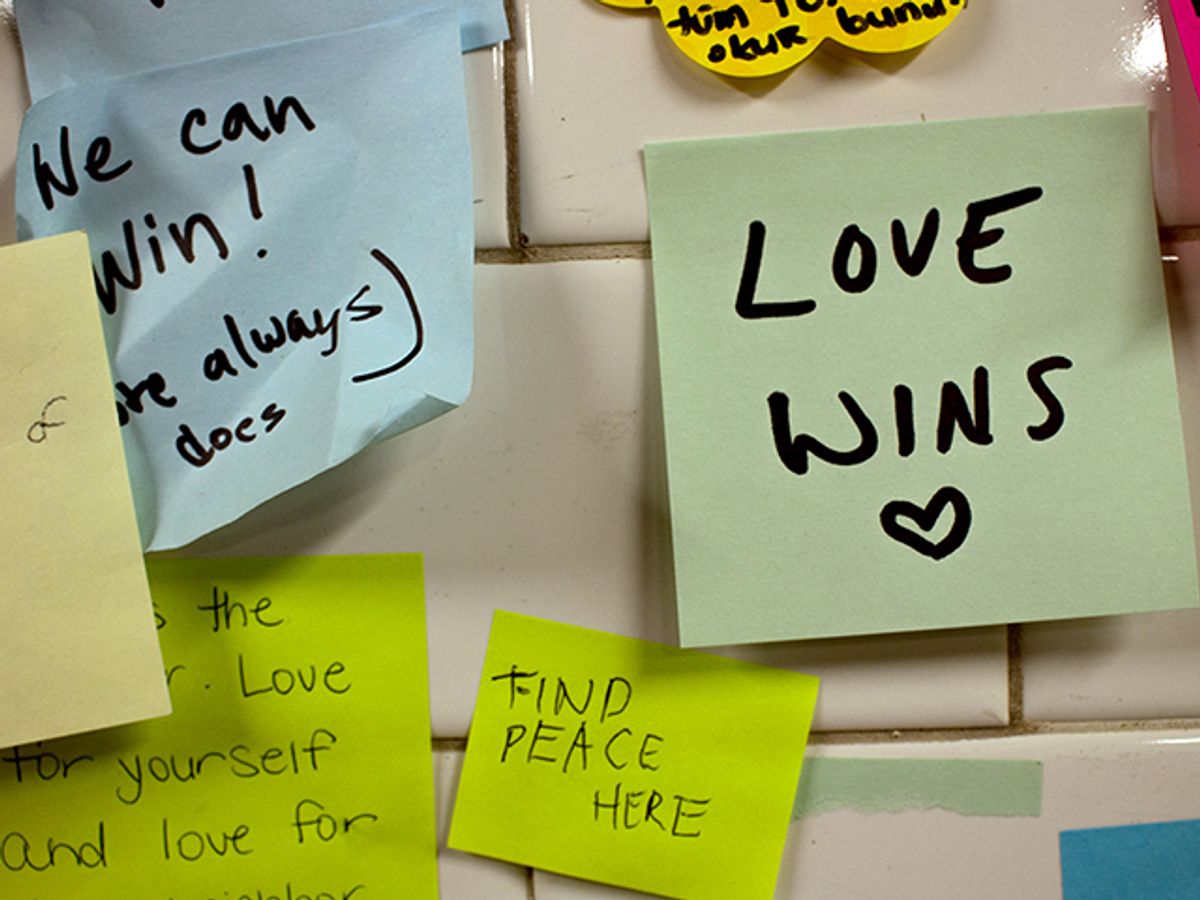The aftermath of the 2016 presidential election inspired an immediate array of creative responses to event that many found so bewildering. One of the more memorable was the brainchild of New Yorker Matthew Chavez, a project called Subway Therapy. What began as a simple invitation for people to express their postelection feelings via Post-its in his city's Union Square subway station quickly became a dramatic outpouring of sentiment. The project has since grown and will be the subject of a forthcoming book next fall to be called "Signs of Hope: Messages from Subway Therapy."
During a recent episode of "Salon Talks," Chavez said, "Whenever I would go out and do Subway Therapy, sit there and I would talk to strangers who maybe didn't have anyone else to talk to, that was an opportunity to have a nice conversation. It wouldn't necessarily be somebody that I agreed with but it's someone who's interested in conversation, interested in connection, interested in being part of the community."
Observed Chavez, "We are in a very divided sociopolitical environment right now," adding, "Because of that, it's really important to provide people with an opportunity to connect." And while social media can easily reinforce a sense of isolation or the feeling that we're all in our own separate bubbles, something as old-fashioned as paper and pen can bridge divides.
"We should do things that help people connect to each other or that help us to have conversations," Chavez added. "If you provide people the opportunity to write on a sticky note and read sticky notes, they can see the other side and see that they're not monsters. They're not the enemy. They're just people."
Watch more of Chavez's conversation on Salon about how collaborative public art can channel divergent responses to a jarring election.



Shares